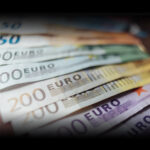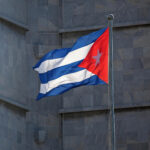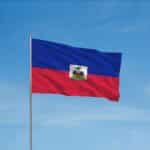Euro Day is celebrated every January 1 in memorial of when 11 European nations adopted the euro, ushering in a new era for the continent. Did you know that the idea of a European currency was raised as early as 1929? But it wasn’t until 70 years later that the euro finally came into existence. The euro is a currency used as a legal tender by 19 countries, including Croatia, Denmark, Sweden, and Hungary. It is also used by non-E.U. member territories such as Andorra, Monaco, Vatican City, Kosovo, and Montenegro.
History of Euro Day
The idea of a single currency for the European continent was first proposed before the League of Nations by Gustav Stresemann, in 1929. This idea came as a result of the aftereffect of World War I, in which more European nations were created, leading to more economic divisions.The idea of an economic and monetary union in Europe did not take root until 1969, when the European Council tasked the then Prime Minister of Luxembourg, Pierre Werner, to develop plans for reducing currency exchange rate volatility. However, these plans for the European monetary union suffered a setback when the U.S. removed the gold backing from the U.S. dollar, crashing all major currencies.In 1979, the plan was revived with the introduction of the European Monetary System to stabilize exchange rates and counter inflation by fixing exchange rates onto the European Currency Unit. In 1988, monetary cooperation with a central bank was proposed at the European Council summit. The European Commission, France, and Italy agreed to it, but the British were in opposition. But it didn’t stop other European leaders from signing the Maastricht Treaty on February 7, 1992, forming the European Union.The name “euro” was adopted for the new currency in 1995, and January 1, 1999, was set as the launch date. At midnight on 1 January 1999, the euro was introduced in non-physical form, and the currencies of the participating nations officially ceased to exist, although their physical currencies (coins and notes) continued to be used as legal tender until January 1, 2002, when euro notes were introduced.
Euro Day timeline
The E.U. emerges, following the Maastricht Treaty signed in 1992 and enforced in 1993.
Euro becomes the name of the new single currency for the 11 participating European nations, who were all members of the E.U.
The 11 participating European nations lock the exchange rates of their currencies to each other and the euro.
Euro becomes a legal tender in the 11 participating nations, rendering their local currencies obsolete.
Euro Day FAQs
What was the currency before the euro?
There was no single currency for the countries within the eurozone before the euro was introduced. But these countries’ exchange rates were fixed onto the European Currency Unit.
Who adopted the euro first?
Euro was first adopted by 11 participating countries that were party to the Maastricht Treaty. That includes France, Italy, Germany, Luxembourg, Spain, Portugal, Finland, Belgium. Austria, Netherlands, and Ireland.
Did the U.K. ever use the euro?
No, the U.K. never used the euro. While still members of the European Union, the U.K. and Denmark negotiated opt-outs that allowed them to continue using their currencies, Pound sterling and Danish krone, respectively.
How To observe Euro Day
-
Learn more about the history of the euro
You can use Euro Day to learn more about the euro. Start with the history of the euro in this article and do further research on the internet. Afterward, share your learning on social media while, using the hashtag #EuroDay.
-
Educate yourself on the history of your country’s currency
The same applies to the history of your country’s currency. Most of us use money without knowing how it was created and the events that led to its creation. Dedicate Euro Day finding out.
-
Trade the euro
Euro Day can be a day for you to venture into forex trading if you have never done it before. Euro is available for trading on the foreign exchange market for anyone with a brokerage account. You can get started with popular apps such as Robinhood that are designed for beginners. But before you start trading, you should take a crash course on forex trading to avoid losing your money.
5 Interesting Facts About The Euro You Did Not Know
-
19 E.U. nations use it
Of the 27 E.U. member states, 19 of them use the euro as the official legal tender
-
It was first a digital currency
When the euro was introduced in 1999, it was non-physical and could only be used for electronic and bank transfers.
-
Non-E.U. members use it
Aside from European Union member states, countries such as Kosovo, Andorra, Monaco, and Montenegro use the euro.
-
It’s the world’s second-largest reserve currency
After the U.S. dollar, the euro is the currency with the largest reserve globally, at 526 billion euros.
-
Iran uses it for foreign transactions
There is no love between the U.S. and Iran, which is why the country converted all its foreign assets to the euro and uses it in transactions with other countries.
Why Euro Day Is Important
-
Euro creates market and price stability
If you have traveled to a country with a different currency or dealt with foreign businesses, you would know the costs and problems of fluctuating exchange rates. But by introducing the euro in the eurozone, countries have made it possible for a shared economy, where there is little difference in prices, and a stable market. This builds business and consumer confidence. It also encourages growth.
-
Euro promotes European trade and investment
As the second-largest reserve currency globally, the euro is a relatively stable currency, which makes the eurozone an attractive region for investment. Plus, since organizations do not need to deal with the cost of shifting exchange rates, they are more willing to trade with businesses in the eurozone.
-
Euro serves as a form of European identity
Euro provides people within the eurozone a common European identity, giving them relevance on a worldwide scale and a powerful voice in the global economy.
Euro Day dates
| Year | Date | Day |
|---|---|---|
| 2022 | January 1 | Sunday |
| 2024 | January 1 | Monday |
| 2025 | January 1 | Wednesday |
| 2026 | January 1 | Thursday |
| 2026 | January 1 | Friday |


















































































































